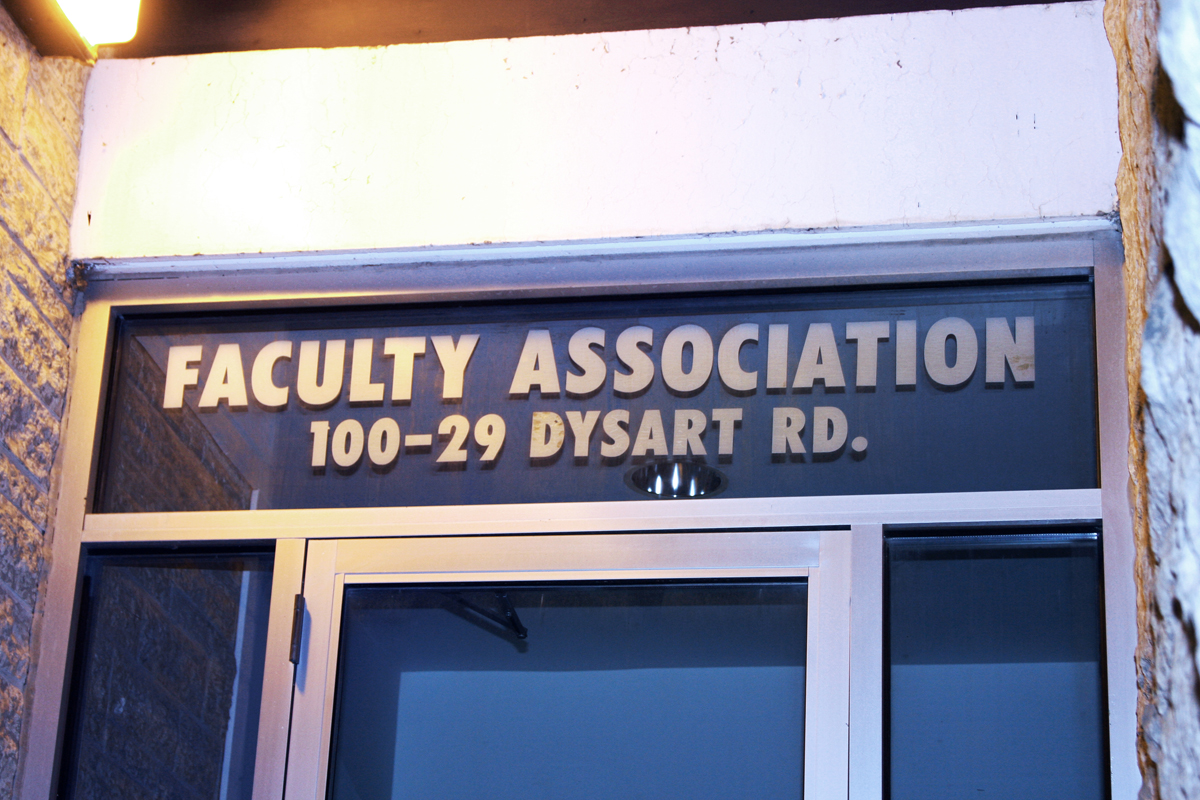The University of Manitoba Faculty Association (UMFA) has elected a new vice-president after an opening was created for the position in May.
Three candidates were nominated for the position: Mark Hudson, assistant professor in the department of sociology and co-ordinator for the global political economy program; Caterina Reitano, senior Spanish instructor from the French, Spanish and Italian department; and Kevin Scott, senior instructor from the department of biological sciences.
Ballots were delivered to UMFA members by mail and counted after the voting period closed on Oct. 29. Mark Hudson was declared the winner.
Hudson and Reitano had both previously served as representatives on UMFA’s board of representatives for sociology and French/Spanish/Italian/German/Slavic studies, respectively. Hudson also served as member-at-large on the executive council. Reitano will retain her seat on the board of representatives.
Tom Booth, professor in the department of biological sciences, served as executive-secretary last year and won the vice-president position in an uncontested election last winter. However, at the May meeting of UMFA’s board of representatives, Booth declined the seat.
University of Manitoba Faculty Association president Thomas Kucera told the Manitoban that Booth’s decision was made in hopes of creating room for new people to get involved with UMFA’s executive council.
Booth previously served as president of UMFA. Since declining the vice-president position, he has been elected president of the Canadian Association of University Teachers Defence Fund.
Hudson said that he ran for the vice-president position because he believed UMFA had been critical in preserving the quality of faculty’s work life and fighting for academic freedom on campus.
“My father—then a professor in the faculty of social work—walked on the UMFA strike lines in 1995. His commitment to the principles of academic freedom that UMFA was defending then—and that it’s still fighting for now—was part of what inspired me to get more involved.
“Also, having worked at non-unionized [institutions in the United States] where faculty work has been devalued; where administrations have unilaterally increased faculty workloads and set salaries; and where they have pushed for a model of top-down institutional governance, I know how important and effective faculty associations are in defending work life quality and safeguarding university as a place of free inquiry and learning.”
Either of the other candidates would have made a great vice-president, said Hudson.
“They’ve both made huge contributions to UMFA. It’s a real sign of vibrancy that we had three people running for the position. I think we’re seeing a re-emergent interest in the association’s governance, and a recognition that we all need to chip in if we want to have a strong organization.”
Hudson said he would like to see increased discussion between students, faculty, and student and sessional academic workers—represented by CUPE 3909—over issues that impact them all.
“One of the things I’d like to do is to build those relationships – get us into a more sustained conversation about how the university runs, spends money, [and] makes decisions.”
He also placed a priority on reaching out to new and junior faculty members.
“There are plenty of ways that members can participate in running the association, and I think we have some work to do to make newer faculty aware of this – and maybe to remind some of the more senior people as well. [The University of Manitoba Faculty Association] bargains our collective agreement, and we defend our members against violations of that agreement, but we do that better the more our members feel that this really is their union.”





